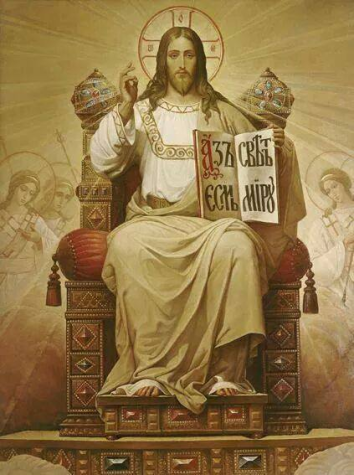
Today is the Feast of Christ the King. And how Kim and I have been blessed today by a high Latin Mass celebrated today by the Institute of Christ the King …
Now, it is a truism that the Catholic Church has changed a great deal since Vatican II.
It is also a truism that since Vatican II the Catholic Church has – as it is frequently remarked – ‘made peace with modern world’ …
Truism: the word invites the idea of triteness, something that everyone knows so well that there is little point to mentioning it. In modern American vernacular: “Well, duh” …
And the things I have just said about Catholicism are often taken as truisms.
But are they?
For how many people today truly realise how radically – how very, very radically – the Catholic Church changed in the 1960s?
And by contrast, how few people see how radical the Catholic Church was before the 1960s?
Radical: etymologically the word is related to the Latin radix for root and the late Latin radicalis (“of or pertaining to the root, having roots, radical”).
And before the 1960s the Church challenged the very roots of modern society.
Now, due to many pressures, I have not easily been able to write this weblog recently.
And today, the Feast of Christ the King, there is little time to expand on the above ideas. They must wait for a time when I can truly develop them.
Instead of writing much myself, then, I will draw from an old Catholic missal, regarding the Feast of Christ the King. But not too old – 1945 in fact.
For there we see, still in 1945, how radically contrary to the modern world (i.e. from the roots up), the Church still was, less than twenty years before the Council.
For the Missal was hardly radical for its time – it represents the ordinary teaching of the Church then.
Now, the Missal uses the word laicism. Today, we would say secularism and I have taken the liberty of inserting secularism in what follows – as it may help to stimulate realisation as to the enormous, shuddering change within the Church since 1945.
For truly, it is impossible to imagine the Catholic Church of today, speaking like this about secularism:
In his Encyclical of December 11, 1925 [Quas Primas, regarding Christ the King], His Holiness Pius XI denounced the great modern heresy of laicism [i.e. secularism].
It refuses to recognize the rights of God and His Christ over persons and peoples and organizes the lives of individuals, families and of society itself, as though God did not exist.
This laicism ruins society, because in place of the love of God and one’s neighbour, it substitutes pride and egoism.
It begets jealousy between individuals, hatred between classes and rivalry between nations.
The world denies Christ because it ignores His royal prerogatives. It must be instructed on this subject.
Now “a yearly feast can attain this end, more effectively than the weightiest documents issued by ecclesiastical authority”.
The Holy Father has instituted this new feast to be a public, social and official declaration of the royal rights of Jesus, as God the Creator, as The Word Incarnate, and as Redeemer.
Note: Those readers who are students of Valentin Tomberg may note that 1945 is very close to the time of Tomberg’s momentous conversion. He began his first Catholic legal thesis the previous autumn, as the bombs fell on Western Germany where he was living at the time …
Foreword for Monarchy by Roger Buck
The student who studies closely Tomberg’s legal theses will readily see how they readily pertain to the orientation of the Catholic Church at that time, which is expressed above and which persisted right up until the Second Vatican Council.
For there Tomberg calls on the State to support the Church for the purpose of maintaining Christian civilisation (rather than secular civilisation).
And thus the student of Tomberg may readily understand why, two decades later, Tomberg critiqued Vatican II so strongly – and clearly did not wish to see a Church which had ‘made peace with the modern world’ … (There is more about this here.)
Pressed for time as I am, dear Reader, I will simply leave you with a quote from Tomberg’s legal theses, which has given me much to ponder over the years in understanding Tomberg’s critique of laical or secular culture:
The French Revolution was but a stepping stone – a stepping stone that demonstrated with alarming clarity the great trend of revolutions which began with humanism in the Fourteenth Century, then resulted via the Reformation in the Enlightenment of the Eighteenth Century, which in turn, took “fleshly” form in the revolution of 1789.
From there it advanced via 1830 and 1848 to the international community of 1871 [when the Third French Republic arose, among other things – RB] – and to the Russian revolutions in 1905, February 1917 and October 1917.
The beginning of the revolutionary development is harmless humanism, the swooning over laical culture; and it ends with Black and Red Bolshevism – as the final result of the destruction of the great temple of piety, in which and from which the soul of the occident draws its life-force.
The joy of thinking and researching without God in laical humanism led to the first push in the direction towards further “emancipations”, i.e. the severing of the bonds of reverence: reverence for the Church´s tradition, including her saints and sages; reverence for the tradition of chivalry, including its reverence for women and the sancity of word and honour, finally reverence for the human being itself, with its right to life, liberty and property.
One started thinking without God and one ended up with life without God, the push to liberate oneself from one bond (research liberated from religion) led ultimately to the liberation from all bonds.
Thus was created a human without reverence, the psychological Bolshevik …
Buying Books at Amazon Through These Links Gives Us a Commission. This Supports Our Apostolate. Thank You if You Can Help Us Like This!









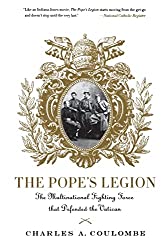
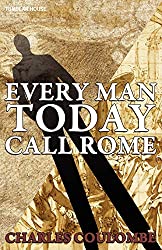
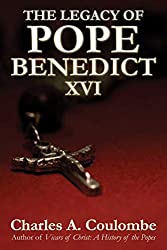
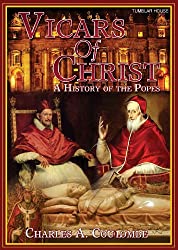
Comments
comments are currently closed
4 responses to “Secularism and the Feast of Christ the King”
Very nice & timely Roger.
I am so thinking of this today with our American elections approaching. Our little bulletin quoted Dom Prosper Gueranger’s piece about this feast. I wish I had it with me now. Perhaps I will go get it and give you a little quote of it later. Needless to say, I found Gueranger’s quote and another quote from Quas Primas to be very prophetic and certainly you would never hear such language in a homily today.
Oh, how much we have lost! I fear we will not regain some of what has been lost without a persecution. But God has all in His hands – He has a plan and a purpose that will show forth His goodness and glory. May His will be done.
Have a good night Roger and I will return soon.
Hi, Roger,
First of all thanks for the blog, in which I´ve found much inspiration.
As you, I´m also a convert from new age movement to catholicism, with no little help from Valentim Tomberg’s work. For about seven years, now, I´ve been attending chapels linked with the SSPX or other branches of the traditionalist movement.
That´s the reasons why I think no one would be better qualified as you to give me an advice I badly need. I want to choose a school for my daughter, now almost 3 yrs old. The closest thing to a catholic preschool that I´ve found is an Waldorf institution. What do you think of that, at least for the next 2-3 years.
Many thanks in advance. Any hint coming from you would be greatly appreciated, adn rewarded with my sincere prayers 🙂
Henrique
PS: sorry for my typos and english mistakes – I´m brazilian 🙂
Apologies to several people at once.
Some of your comments here got lost in a most monstrous deluge of spam (thousands over a few days).
So I did not see your much appreciated comments for some days. This is true for the people on this page as well as other pages.
We do appreciate your comments very much and will be responding to each one individually. Possibly I shall respond to one or more of you privately.
It may take a little time, because in addition to the spam deluge, other things are preventing me from giving my the time I need to this blog (and Kim suffers a vision problem that limits her access to computers – I upload everything for her).
That being said, new material will be appearing at this website soon (mainly from Kim).
And I will be replying to your much appreciated comments. Thank you!